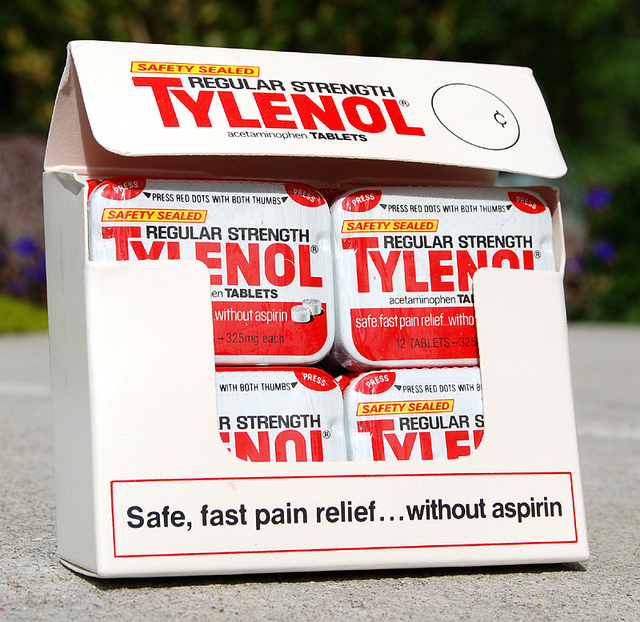
Pharmacists are among the most accessible of health professionals, and so we receive a lot of questions from the public. No appointment required, and the advice is free. Among the most frequent sources of questions are women seeking advice on drug use in pregnancy. This is an area where some health professionals are reluctant to tread. Some prefer to redirect all of these questions to physicians. But physicians are not always easily accessible, and few want to make an appointment just to ask what appears to be a simple question: Is it safe, or not? Admittedly, addressing questions about drug use in pregnancy can be challenging. There are no randomized controlled trials we can look to — there’s only messier, less definitive data. Our responses are filled with cautious hedging about risk and benefit, describing what we know (and don’t know) about fetal effects. In the pharmacy, one of the most common questions from pregnant women is about the use of acetaminophen (aka paracetamol aka APAP), more commonly known by the brand name Tylenol. Google “Tylenol and pregnancy” and you get 4.8 million results. Which source should you trust? Continue reading
acetaminophen
Is acetaminophen still the pain reliever you should trust?

Recently ProPublica and This American Life (TAL) released the results of an investigation into acetaminophen, the active ingredient in Tylenol. TAL devoted an entire episode to the issue, and ProPublica has published several stories on acetaminophen’s toxicity, how it can cause harm, and how it is regulated.
The investigation summarizes the key “Takeaways” as follows:
- 150 Americans die per year from accidental acetaminophen overdoses
- The safety margin (safe dose vs. toxic dose) with acetaminophen is small
- Both the FDA and the manufacturer, McNeil, have known about the toxicity for years
- For over 30 years the FDA has failed to implement measures to reduce the risk of harms it knew existed
- The manufacturer has taken steps to protect consumers but has also opposed other safety measures
While Tylenol is a single brand out of hundreds of prescription and non-prescription products that contain acetaminophen as an active ingredient, it is the brand most closely associated with the chemical. Amazingly for a drug that has no patent and lots of competition, Tylenol products are estimated to make up half of all non-prescription acetaminophen sales in the US, a testament to the power and effectiveness of marketing. (It’s also a clear refutation to alt-med arguments that unpatented products can’t be profitable, or aren’t of interest to the pharmaceutical industry.) While much of the focus of the investigation centers on the corporate behavior of Tylenol’s manufacturer, McNeil, (a division of Johnson & Johnson), it is important to keep in mind that no single company is responsible for acetaminophen sales and marketing. Continue reading
Tylenol: Safe painkiller, or drug of hepatic destruction?

This is somewhat of an update to a prior post.
What do Tylenol, Excedrin Extra Strength, Nyquil Cold & Flu, Percocet, Vicodin, and Anacin Aspirin Free have in common? They all contain the drug acetaminophen. Taking multiple acetaminophen-containing drugs can be risky: while acetaminophen is safe when used at appropriate doses, at excessive doses, it is highly toxic to the liver. Take enough, and you’ll almost certainly end up hospitalized with liver failure. Acetaminophen poisonings, whether intentional or not, are a considerable public health issue. In the USA, poisonings from this drug alone result in 56,000 emergency room visits, 26,000 hospitalizations, and 458 deaths per year. [PDF] This makes acetaminophen responsible for more overdoses, and overdose deaths [PDF], than any other pharmaceutical product.
Last week, Johnson & Johnson announced that it’s lowering the maximum recommended daily dose for its flagship analgesic, Extra Strength Tylenol, from 8 tablets per day (4000mg) to 6 tablets per day (3000mg). Why? According to the manufacturer,
The change is designed to help encourage appropriate acetaminophen use and reduce the risk of accidental overdose.
Time to say goodbye to Vicodin, Percocet, and Tylenol #3?
Tylenol has been in the news lately, and while there isn’t any new science to discuss, it’s worthy of some attention, as it illustrates how safety data is used to constantly evaluate the risks and benefits of a drug. Continue reading

You must be logged in to post a comment.